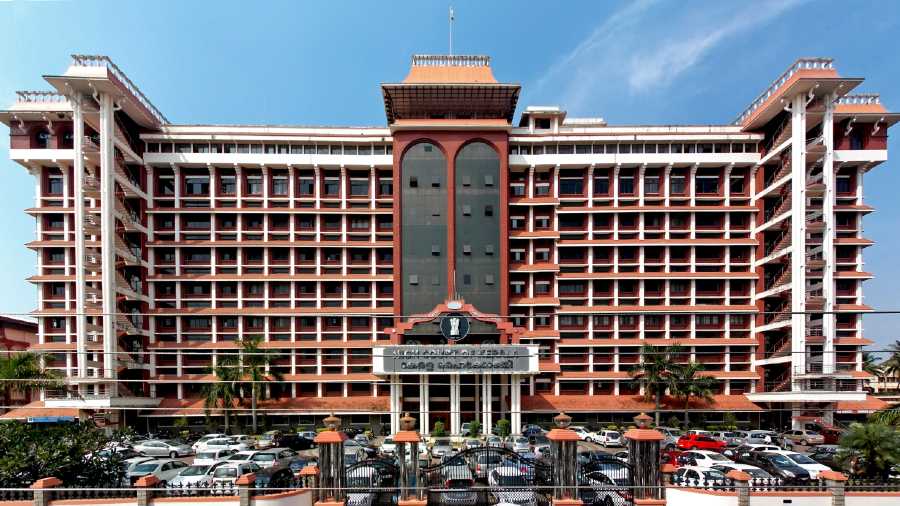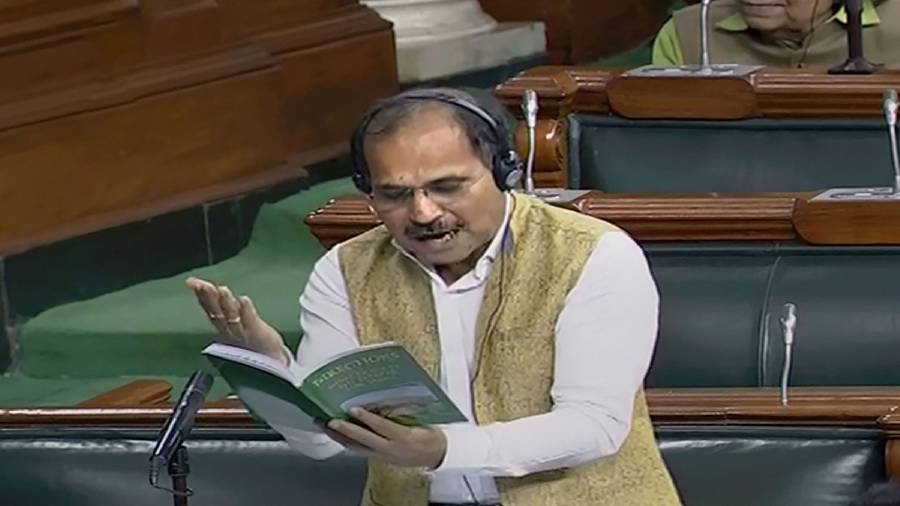Quoting an ancient text that dates back to the age of the Rig Veda, a Kerala High Court judge on Tuesday agreed with the “national security” concerns raised by the Centre and upheld the denial of permission for Malayalam news channel MediaOne to telecast.
The channel went off air around noon — the second time in a little over a week — but is continuing its transmission through its YouTube channel since the revocation of licence is confined to satellite uplinking and downlinking.
Primetime in Kerala witnessed an uncommon debate by many competitors of MediaOne on the manner in which the Centre went about revoking the licence. Almost all Malayalam news channels picked up the matter, unlike the early days when only Left-backed or Left-leaning channels discussed the issue.
On Tuesday night, among the channels that focused on the issue was Asianet News, the market leader owned by Union minister of state for skill development Rajeev Chandrasekhar.
A key concern is that few, other than the judge who was given a sealed envelope by the Union home ministry, know what exactly triggered the national security concerns. Even the channel, which has been operating for nearly 10 years, has not been informed by the government which specific commission or omission led to the denial of security clearance.
The judge said that “once the State is of the stand that the issue involves national security, the court shall not disclose the reasons to the affected party”.
Justice N. Nagaresh, who went through the files submitted by the Union home ministry on why it refused the security clearance to the channel owned by Madhyamam Broadcasting, said “adverse” intelligence inputs that were “serious” in nature had driven the decision to revoke the broadcasting licence of the channel that extensively covers minority issues and is popular in the Gulf.
The Sangh parivar has been targeting the channel on the ground that some of its promoters are associated with the Jamaat-e-Islami Hind, known for its rigid religious views but not banned in India.
Justice Nagaresh quoted Atrisamhita to highlight the importance of national security. “To punish the criminals, to protect the good, to enrich the treasury by just methods, to be impartial and to protect the Nation — these are five fundamental duties to be performed by the state,” the order quoted the text.
The high court said: “The concept of good governance would take in within its ambit a secured state. Ensuring national security involves any possibility that may threaten national security. The national security is an executive responsibility, where the Legislature and the Judiciary have only complementary roles.”
When the counsel pointed out that the jobs of more than 300 employees of the channel were at stake, Justice Nagaresh replied: “I understand the situation of the employees and business and all. But what is involved is a matter of national security.”
“I had granted an interim order to you hoping that I will have something to interfere. Now going by the judgment of the apex court and seeing the files, it will not be proper for me to extend the stay even for one hour,” Justice Nagaresh replied when senior counsel S. Sreekumar, appearing for MediaOne, sought the order to be kept in abeyance for two or three days to facilitate an appeal before a division bench.
Another counsel for the channel, Rakesh K., later said an appeal would be moved before a division bench of the high court on Wednesday.
MediaOne editor Pramod Raman said in a video message after the verdict: “The basic question here is that the whole legal process started with the question, why did the government deny the security clearance to the channel. But finally, the judicial process in the high court ends with the same question being asked, with no answer available for MediaOne.”
Raman said MediaOne was ready to take the battle to the Supreme Court because the issue involved media freedom. “This is going to affect the freedom of the press in the country for the long term. We will fight it legally to the last breath of our channel,” he said.
The judge said in the judgment: “The ministry of home affairs made available the relevant files. I have perused the files, it emerged from the files that the ministry of home affairs had called for intelligence inputs from various intelligence agencies. The files contain paginated documents including the discussions, opinions and conclusions of the committee of officers and other officers of the ministry of home affairs, and the guidelines for assessment of proposals received in the MHA for national security clearances. National security covers preservation of nation’s unity, territorial integrity, sovereignty and protection of life and liberty of individuals.
“From the files produced before this court, it is discernible that the committee of officers noted the adverse inputs given by the intelligence agencies against the company are serious in nature and falls under the security rating parameters. In the circumstances the committee of officers advised not to renew the licence. This court finds that the recommendations of the committee of officers as finally accepted by the ministry of home affairs are justified by supporting materials.”
The ministry of information and broadcasting had revoked MediaOne’s licence on January 31. While the channel went off air for close to seven hours that day, it was restored after the court granted an interim stay on the government order.












